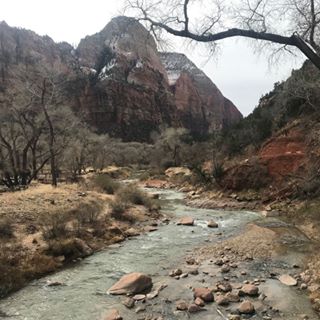On July 4, physicists at the Hadron Collider in Switzerland
announced that there is better than a 99% chance that they found the Higgs
Boson, which has also been nicknamed the “God Particle.” The Higgs Boson is the particle that explains
why matter has mass and is the final missing piece in the Standard Model, which
describes the tiny particles that are the building blocks of all matter in the
universe. [1] The implications of the discovery are
far-reaching. The Higgs Boson is seen to
unify two key forces in physics, the electromagnetic force that governs the
interaction between two charged particles, and the weak force, which is
responsible for radioactive decay. Also,
with all the particles predicted by the Standard Model now accounted for,
physicists now can speculate on the next, potentially larger theory that may
follow from the Standard Model as well as focus on other mysteries of the
universe, for instance, dark matter, dark energy, and the fate of the
universe. [2]
Although the media has freely called the Higgs Boson “The
God Particle,” Physicists do not embrace the nickname, emphasizing that the
long search for the particle was a scientific endeavor, not a religious
one. Ironically, the nickname came from
the title of a book written in 1994 by Nobel winning physicist Leon Lederman
and has a far from religious origin – he wanted to name his book “The Goddamn
Particle” given how difficult it had been to find the elusive boson. Much to the chagrin of physicists, the
nickname was adopted by the media. [3]
Physicists, much like any other group of people, are at all
different parts of the spectrum when it comes to religious and spiritual
matters. There are atheists, agnostics,
devout practitioners of a religion, and those that are deeply spiritual. Max Planck, the father of Quantum Theory was
a practicing Christian and often wrote about spiritual matters: “All matter
originates and exists only by virtue of a force…We must assume behind this
force the existence of a conscious and intelligent Mind. This Mind is the matrix of all matter.”
[4] Albert Einstein, a self-professed
agnostic, was in fact quite spiritual: "A knowledge of the existence of
something we cannot penetrate, of the manifestations of the profoundest reason
and the most radiant beauty, which are only accessible to our reason in their
most elementary forms—it is this knowledge and this emotion that constitute the
truly religious attitude; in this sense, and in this alone, I am a deeply
religious man." [5] Physicist
Stephen Hawking, considered atheistic, believes that science is the only truth,
but wrote in A Brief History of Time: "However, if we discover a complete
theory, it should in time be understandable by everyone, not just by a few
scientists. Then we shall all, philosophers, scientists and just ordinary
people, be able to take part in the discussion of the question of why it is
that we and the universe exist. If we find the answer to that, it would be the
ultimate triumph of human reason -- for then we should know the mind of
God." [6]
Physics is the branch of science that attempts to understand
the workings of nature and the very fabric of the universe. Physicist Vivek Sharma: “Physicists are
generally driven to understand how nature works — as 'natural philosophers' we
appreciate the beauty of its order and its chaos, perhaps more than most.” [4]
Physicists are charged with answering these types of questions “Why does
our universe behave as it does?...Where did our universe come from?...What is
the fate of our universe?...Are there other parallel universes?” These questions dance around the
philosopher’s existential question “Why are we here?” And all of these questions interest the
spiritual person, who would answer “Why are we here?” with “We have a purpose –
we are connected to a Greater Reality, something much grander than we can
understand or imagine.”
Now that the Higgs Boson has finally been found, physicists
will continue to explore the fabric of our existence and increase our
understanding of reality. In their
search will we eventually come to understand, as Hawking puts it, “the mind of
God?”
References:
[1] http://www.livescience.com/21380-higgs-boson-particle-lhc-findings.html
[2] http://www.livescience.com/17433-implications-higgs-boson-discovery-lhc.html
[3] http://www.livescience.com/17489-god-particle-higgs-boson.html
[4] http://www.goodreads.com/author/quotes/107032.Max_Planck
[5] Einstein,
The World as I See It, (New York, Philosophical Library, 1949), ISBN
0-8065-2790-0.
[6] Hawking, A
Brief History of Time (New York: Bantam, 1988)
Photo credit: CERN



























